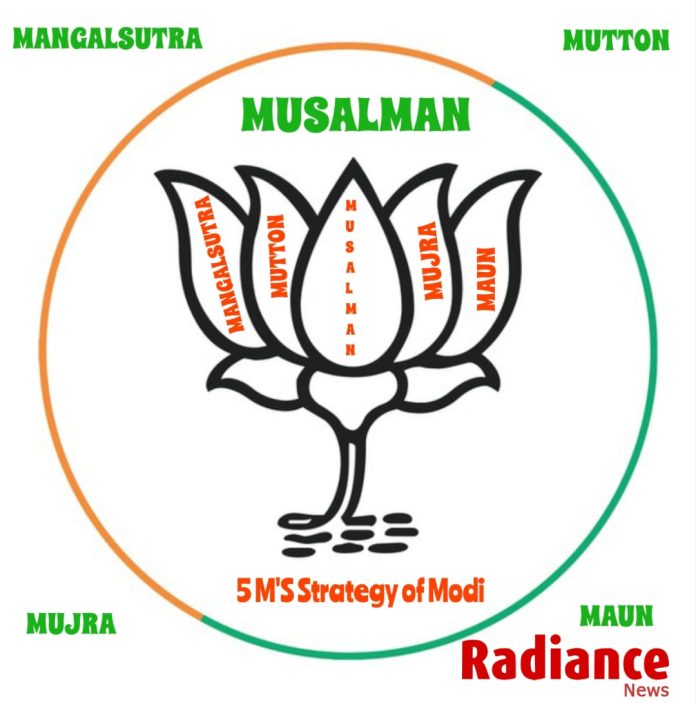– RN Staff Writer
In less than 36 hours, the 2024 Indian general elections will conclude, with exit polls indicating a victory for the BJP-led NDA. The Election Commission of India (ECI) has faced criticism for allegedly aligning with the BJP’s interests, particularly in scheduling and handling the elections.
One contentious issue was the timing of the polls, conducted during severe heatwaves with temperatures reaching 53 degrees Celsius. This resulted in numerous heat-related deaths, including 33 poll workers in Uttar Pradesh and Bihar. Critics argue that the elections should have been held in April to avoid such conditions.
The scheduling of polling phases also raised eyebrows. Gujarat’s 26 seats were decided in the first phase, while Varanasi, Prime Minister Narendra Modi’s constituency, was in the last phase, allegedly to facilitate BJP’s campaign. Modi’s election strategy, centered around the ‘5 Ms’ – Mangalsutra, Mutton, Musalman, Mujra, and Maun – further highlighted the BJP’s targeted campaign tactics.
The ECI was also accused of ignoring the Model Code of Conduct when Modi extended the tenure of the Army Chief and appointed four IAS officers during the election period.
Another major concern was the sudden increase of 1.07 crore votes after 380 seats had been decided, an average of 28,000 extra votes per constituency. The ECI’s refusal to fill out Form 17C and its dismissal of Opposition complaints further fueled suspicions.
Mainstream media has been criticized for its portrayal of the BJP’s expected victory, often showing exaggerated figures for BJP’s seat count and vote share in various states. This has led to accusations of narrative manipulation in favor of the BJP.
Despite the current predictions, some draw parallels with the 2004 elections when exit polls failed, and the BJP-led government was ousted. The final results, expected on June 4, will reveal whether the exit polls are accurate or if a surprise awaits.




